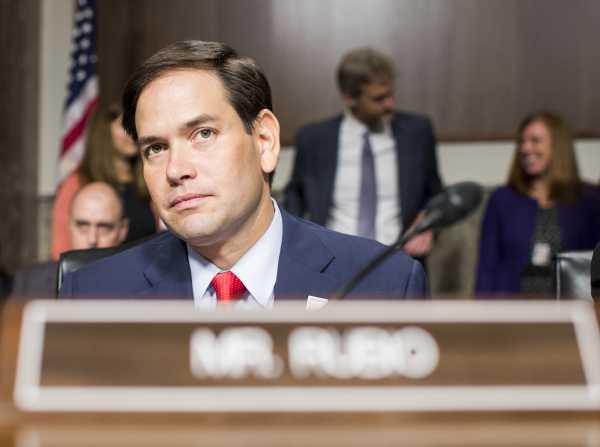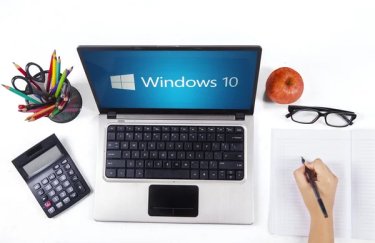
Senate Republicans have broken with Trump just a handful of times, but they could be poised to do so yet again. The latest tension is yet another tied to US trade policy: the rollback of restrictions toward Chinese telecom giant Huawei.
In order to secure commitments from China regarding a potential trade deal, Trump announced over the weekend that US companies would once again be allowed to sell certain materials, like computer chips, to Huawei. That decision not only marks a major shift in US policy toward the telecom behemoth, it’s also another instance in which lawmakers see the president conflating trade with other important US priorities.
In the past, lawmakers have warned that the telecom company, which has close ties to the Chinese government, is a national security risk. They’ve said US restrictions on it shouldn’t be used as a bargaining chip. By offering the company concessions in exchange for gains on trade, Trump is seemingly suggesting that the security risk isn’t so great after all. (Huawei has denied that it works with the Chinese government to conduct surveillance of the US.)
The agreement that Trump worked out with Chinese President Xi Jinping at the G20 summit, involves several issues: In addition to the easing of restrictions on Huawei, the US has agreed to halt additional tariffs on Chinese products, while China has agreed to purchase US agricultural goods.
“We send and we sell to Huawei a tremendous amount of product that goes into the various things they make. And I said, that’s okay, we’ll keep selling that product,” Trump said while discussing the deal during a press conference in Japan this past weekend. “We’re talking about equipment where there’s no great national security problem with it.”
This is a sharp policy change from the past eight months, during which the administration took a number of major shots at Huawei. It also alarmed a number of lawmakers, including Democrats and Republicans.
Sen. Marco Rubio (R-FL), in particular, raised concerns, saying he would introduce legislation aimed at codifying the restrictions against Huawei, which would pass with a “veto-proof majority.” Although it’s not clear whether Rubio would actually have that degree of backing from the Republican conference, the reaction to Trump’s recent announcement has spurred outcry from several leaders on both sides of the aisle.
Even Sen. Lindsey Graham (R-SC), one the president’s closest allies, cautioned that “there’ll be a lot of pushback” if the concessions offered by Trump were major ones. Senate Minority Leader Chuck Schumer, Sen. Tom Cotton (R-AK) and Sen. Marsha Blackburn (R-TN) were among the others who chimed in.
The White House on Sunday quickly sought to quell this outcry, with the National Economic Council’s Larry Kudlow emphasizing that the parts that Huawei could purchase are considered “general merchandise,” or pieces of tech that are already available for sale in other countries.
Republicans, however, still have some outstanding questions.
Senate Republicans are riled up about Huawei because they see the company as a national security threat
Senate Republicans are upset about the president’s latest move on Huawei because they think it suggests that the US is not taking a possible national security threat seriously.
Just this past May, the Commerce Department added Huawei to its “Entity List,” or a list of companies that US firms are not able to sell to without government approval. Additionally, it has barred the use of the company’s products in government systems, and it has sought to convince other countries to do the same.
As Vox’s Emily Stewart explained, those decisions were, in part, a hardline negotiating tactic in the escalating trade war between the US and China. But they also “tie into longstanding concerns about potential spying by Huawei and other national security threats”:
Trump’s willingness to soften restrictions against Huawei (even though the company will remain on the “Entity List,” for now), in exchange for a possible trade win, seems to negate the argument that it poses such a major threat to national security.
This context has led to Republican calls for Trump to maintain a strong front against Huawei, even as he tries to work out a trade deal with China.
“President Trump needs to stand strong against Huawei and stay consistent in making sure they have ZERO access to the US market, said Sen. Rick Scott (R-FL) in a tweet.
Democrats, too, see the easing on Huawei as undercutting the administration’s national security argument.
“We put the whole credibility of the American intelligence community trying to convince our allies about this national security threat,” Sen. Mark Warner (D-VA) told the Hill last week. “You know, I hope the President is able to get a trade deal, but that should not interfere or undermine our national security.”
Huawei is expected to continue to play a role in US-China trade negotiations
Kudlow this weekend sought to address some of the Republican pushback and noted that the technology that Huawei would be able to purchase is not a threat to national security. “I hope that when President Trump comes back that he and others of us will be able to persuade Sen. Rubio that there will be no national security violations,” Kudlow said.
Based on Trump’s comments this past weekend, it appears that more details about the United States’ relationship with Huawei will be part of trade talks between the two countries.
That’s something of a win for Xi. As Vox’s Alex Ward has written, Xi hadn’t taken kindly to the US’s “dual pressure campaigns” on the trade and telecom fronts; at the G20, he reportedly made the risky gambit of making easing both of them a precondition to signing a deal.
Additionally, a trade agreement between China and the US has proven elusive for the administration, and, as Ward noted, a win on this front could be a major talking point for Trump on the 2020 campaign trail.
“If Trump is gambling that he can get a ceasefire, leave the current tariffs in place to be ‘tough on China’ while giving Xi what he wants on the less-in-the-public-eye technology sanctions against Huawei, he might go for it,” Jacob Kirkegaard, a global markets expert at the Peterson Institute for International Economics in Washington, told Vox before the G20.
For some lawmakers, backing off on Huawei shows the questionable compromises Trump’s willing to make to reach a trade agreement.
Sourse: vox.com






